A selection of photos from Outforia, an outdoor travel resource platform, has painted a picture of how climate change could affect ten of the world's natural wonders, including the Great Barrier Reef, the Great Salt Lake and the North Pole.
Outforia based its report on information gathered by The Guardian, World Economic Forum and National Geographic, and found that the United States will particularly suffer from the effects of climate change because of its sheer size and geographical range.
"No matter where you live, the chances are you aren't too far from a ‘nature spot’ you love - whether this is a local park or a national landmark. To think that this could be taken away from you in your life is truly saddening," Carl Borg, founder and Editor-in-Chief of Outforia, said in a press release.
According to its findings, rising temperatures are the main root of the problem as this leads to extreme drought, rising sea temperatures and ice melting, which could make the landscapes unrecognisable.
Extreme droughts
Saguaro National Park, Arizona
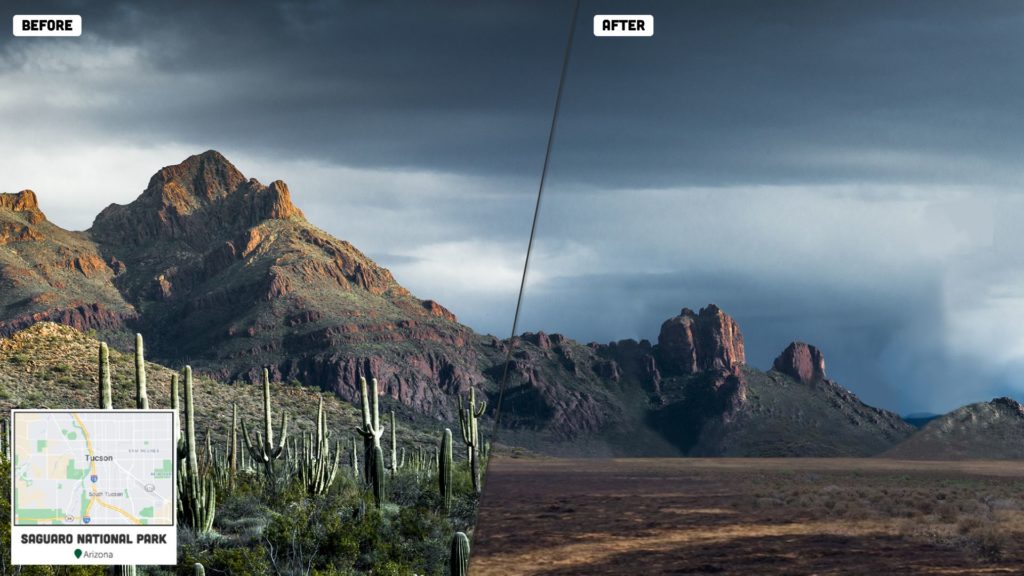
Credit: Outforia
The Saguaro National Park, located in the Arizona desert, is home to the famous saguaro cactus, known for its large, tree-like shape. Climate change could threaten the existence of this iconic cactus, which will lead to more wildfires spreading more quickly due to the buffelgrass covering the floor.
Great Salt Lake, Utah
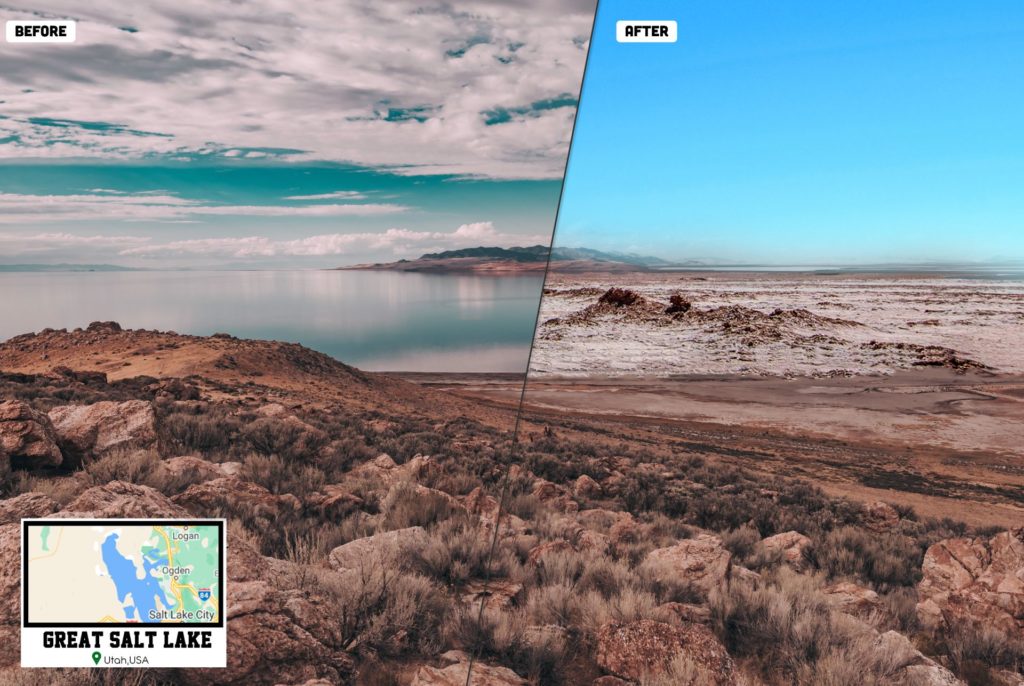
Credit: Outforia
The Great Salt Lake, a popular tourist destination, has already lost at least half of its volume since the first settlers arrived in the area halfway through the 19th century, and could completely dry out.
Victoria Falls, Zambia & Zimbabwe
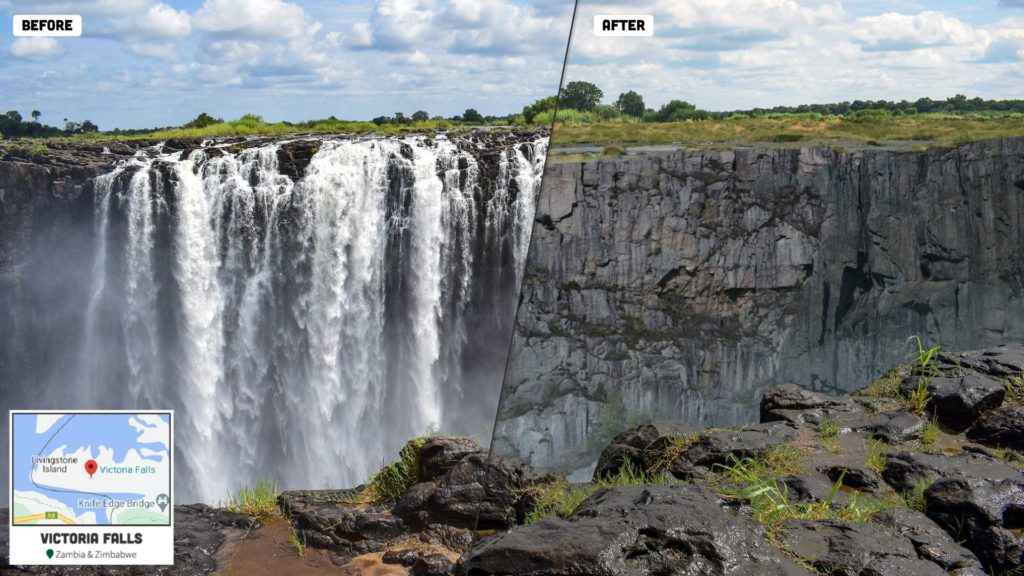
Credit: Outforia
The Victoria Falls, flowing on the Zambezi in southern Africa, reached their lowest levels in 2019. It is possible that this natural landmark could disappear altogether in the future.
Melting ice
The Alps, Mainland Europe
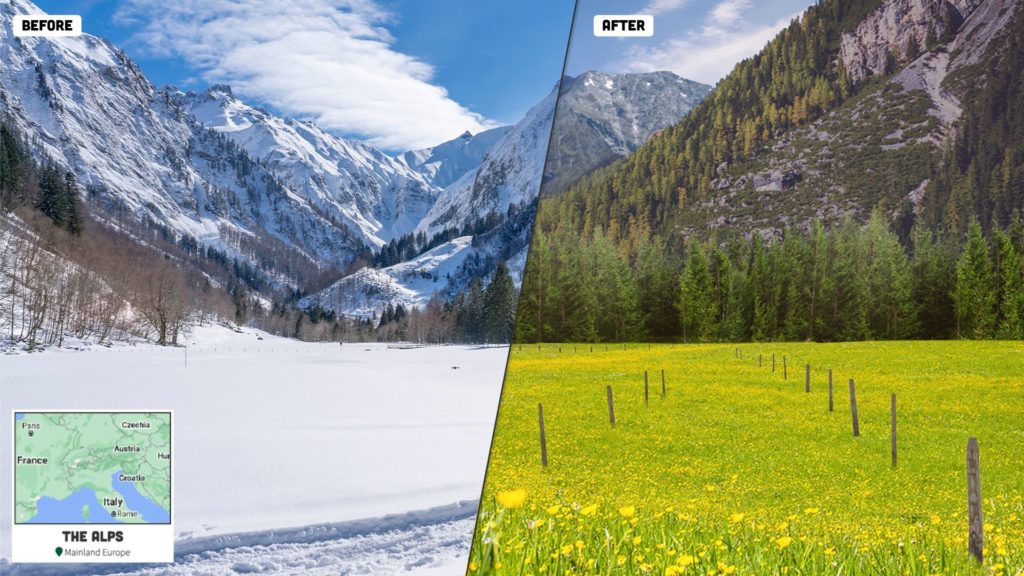
Credit: Outforia
Two-thirds of glacier ice from the Alps will be gone by the end of the century due to global warming, a study by ETH Zurich found.
The North Pole
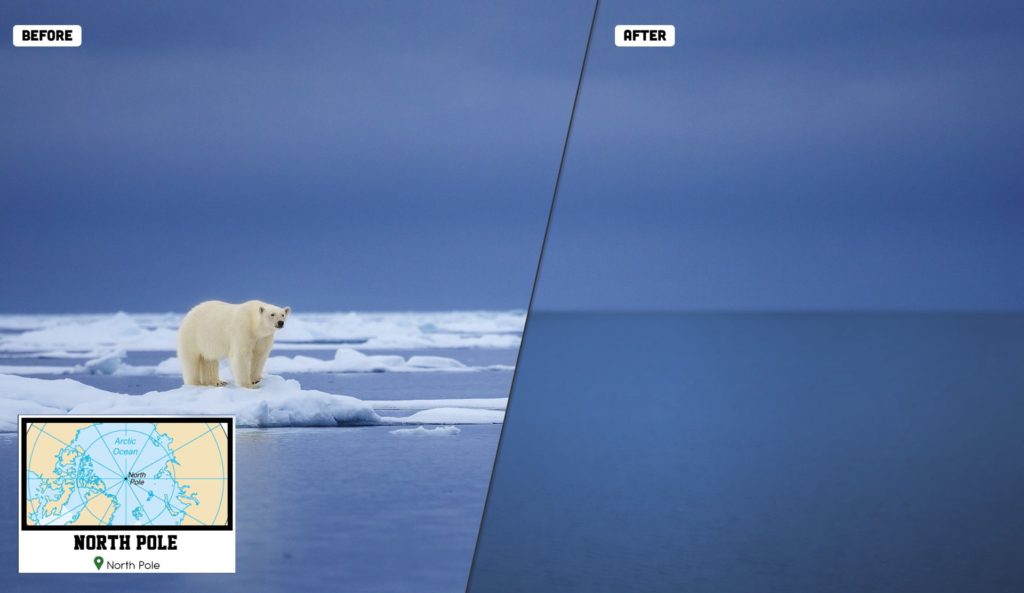
Credit: Outforia
The North Pole's sea ice is rapidly melting, and could therefore completely disappear from the Arctic as soon as 2035, meaning that the North Pole will only be reachable by boat for the first time in human history.
Rising sea temperatures
Great Barrier Reef, Australia
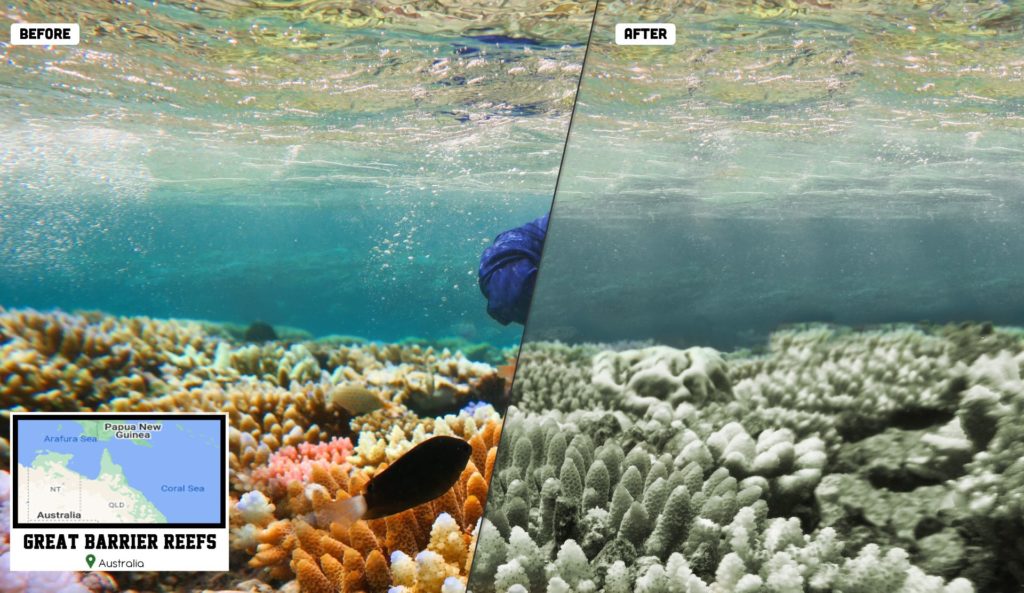
Credit: Outforia
The Great Barrier Reef is home to all sorts of marine wildlife, however, thirty percent of the coral perished in 2016, another 20 percent in 2017. The entire reef could be wiped out by 2050.

